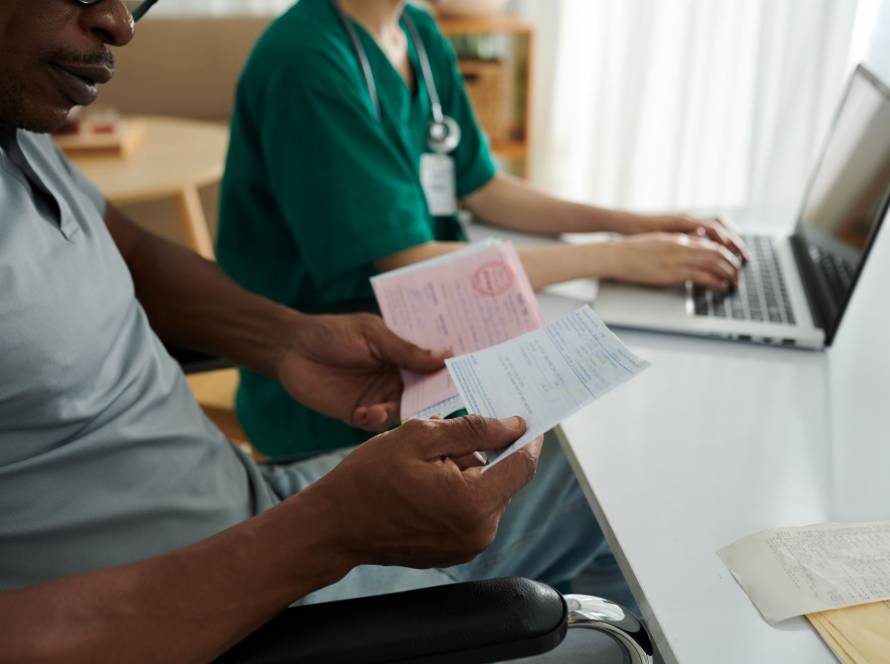A Guide to Florida Personal Injury Protection and Insurance Coverage
When it comes to navigating the often-complex realm of insurance legislation, it’s crucial to understand the specifics – particularly if you’re driving in Central Florida. One area that often leaves people scratching their heads is the Personal Injury Protection (PIP) in Florida. With its no-fault state status and unique requirements, many find themselves puzzled about the intricacies of Florida PIP coverage.
In this comprehensive guide, we’ll demystify PIP in Florida, offer clear insights on costs, and guide you through the filing process. We’ll discuss how it impacts your ability to sue and differentiate it from Medical Payments (MedPay). To help you understand the Personal Injury Protection laws in Florida, here’s a guide to what drivers need to know.
What is Personal Injury Protection (PIP)?
Personal Injury Protection (PIP), commonly referred to as ‘no-fault insurance’, is an essential type of car insurance coverage in Florida. The ‘no-fault’ label means that irrespective of who causes an automobile accident, each driver’s insurance pays their own medical expenses and other out-of-pocket losses.
Florida, being a no-fault state, requires all automobile owners to carry a minimum of $10,000 in PIP coverage. It’s designed this way to reduce the number of negligence lawsuits, encourage prompt medical treatment, and reduce insurance costs.
PIP coverage can be purchased in one of two ways: through an insurance agent or directly from the provider. The most common way is to purchase personal injury protection through your car insurance company. This type of PIP coverage is standard with all car insurance policies in Florida. The amount you pay for this protection depends on your deductible, which is the out-of-pocket expense you must pay before your insurance company will cover any expenses related to the accident.
What Does PIP Insurance Cover in Florida?
Florida PIP coverage is more than just medical bills; it’s a three-fold blanket that covers 80% of all necessary and reasonable medical costs, 60% of lost wages, and $5,000 in death benefits. When it comes to medical cost coverage, the gamut is quite extensive, including surgical services, hospital expenses, rehabilitative services, diagnostic services, and ambulance expenses.
However, there are limitations lurking in the fine print. To benefit from the 80% medical costs coverage, it’s mandatory to seek treatment within 14 days following the accident. Also, non-emergency medical treatments are capped at $2,500.
Costs of PIP in Florida
So, what is the PIP cost in Florida? The premium heavily depends on multiple factors including your driving record, your vehicle, your age, and even your geographical location. However, for an average policy holder, PIP makes up about 20% of the total insurance costs.
To cut this cost, consider opting for a deductible – an amount you pay before the insurer starts covering. Florida allows up to $1,000 deductible on PIP. While a high deductible can lower your premium, it also means higher out-of-pocket costs in case of an accident.
How to File a Personal Injury Protection Claim in Florida
To file a PIP claim in Florida, start by notifying your insurance company about the accident as soon as possible. After notification, send them an initial treatment statement from your healthcare provider within 14 days of the accident. This is essential to activate your PIP benefits; a delay can result in a denial.
While the process may seem straightforward, the hard truth is that insurers always look for ways to minimize their payout. Therefore, if you face any roadblocks or feel you’re not justly compensated, it may be beneficial to schedule a consultation with a personal injury attorney. A qualified attorney can help you get the medical treatment and compensation you deserve. The first step is to schedule a consultation with an experienced Florida personal injury attorney.
Florida PIP Law and Your Right to Sue
Florida’s no-fault status and mandating PIP can limit your right to sue a negligent driver. As per the Florida PIP law, one can bypass the no-fault law and file a lawsuit only if the injury is deemed ‘severe’ by the law – including significant and permanent loss of an important bodily function, disfigurement, or death.
Remember, understanding these exceptions is not just theory but are of practical importance. Knowing when you can sue and when you can’t allows you to effectively claim the compensation you rightfully deserve.
If you or someone you know has been in an accident, contact a personal injury attorney. A lawyer can help you determine if your case falls into one of these exceptions and whether they apply to your situation.
Medical Payments (MedPay) vs PIP in Florida
In Florida, many drivers prudently opt for Medical Payments (MedPay) coverage along with PIP. While at a glance these two seem similar, they serve very different objectives. PIP covers a percentage of your medical bills, lost wages, or death benefits regardless of who is at fault. Conversely, MedPay pays the medical expenses of you and your passengers, regardless of fault, but doesn’t cover lost wages or death benefits.
While PIP is mandatory, MedPay isn’t, but it can certainly fill the gap that PIP sometimes leaves unpaid due to its 80% limit. However, remember, managing both coverages requires a clear understandings of their limitations and how they correlate.
Empower Yourself and Reduce Financial Risks
Navigating the Florida PIP coverage landscape can be challenging, but with this guide, the process should be a little less daunting. Understanding how Personal Injury Protection (PIP) in Florida works, the costs involved, and the coverage provided are crucial aspects of protecting your rights and interests.
With the right knowledge, you can better protect yourself and your family while reducing the potential for financial trouble in the future.
Do you need guidance with PIP insurance in Florida? The friendly and experienced team at Hines Law is here to help. Don’t let the complexities of insurance stand between you and your peace of mind. Call us now for advice on all your personal injury and insurance-related concerns. Let us help ease your burden and provide the support you need.




